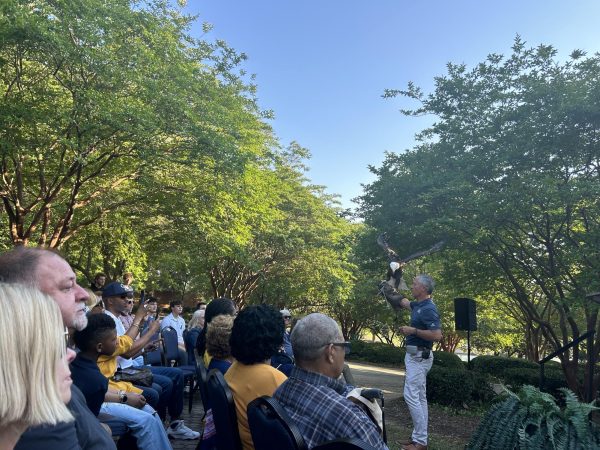Obama proposes changes to FAFSA process
October 1, 2015
The Obama administration recently proposed making several changes to the FAFSA process to decrease the time it takes to fill the form out while making it available to more families.
The form can now be submitted two months earlier, on October 1, and allows parents to sync their IRS tax forms to the FAFSA form to make long distance applications easier to fill out. The process allows students more access to grants based on first come, first serve dispersement and allows parents more time to plan the costs of the next semester of college.
“We estimate that over the next several years, literally hundreds of thousands of students will gain access to critical financial aid each year and be able to attend college when they thought they couldn’t,” said Secretary of Education, Arne Duncan.
Students can now use their parent’s tax information from the previous year and can connect to the IRS to pull the most accurate information possible. This allows students to turn in their FAFSA as early as possible and keeps parents from working on income estimations that may need to be revised later in the year.
“These innovations have increased both speed and accuracy when filling out the FAFSA,” said Duncan. “Students and their families are now able to complete the FAFSA in about 20 minutes, about a third of the time it took just seven years ago.”
The administration also announced the release of the college scorecard, a new tool to help high school seniors and their parents determine what the real total cost of going to college will be.
“For the first time, new data has been made available to students and their parents on a wide scale, which has already started a discussion about the value of college and the return on investment, as well as what colleges are doing well and how well their students are doing after college,” said White House Domestic Policy Council Director, Cecilia Muñoz.
The primary goal of these changes to the FAFSA form is to help students plan for their future and realize that college is within reach.
“It disturbs me, the number of academically eligible students that never applied to college because they didn’t think they could afford it,” said Duncan. “That’s why we’ve spent so much time since coming to Washington, to make the process easier and quicker to complete so students can get the information and aid they need.”














